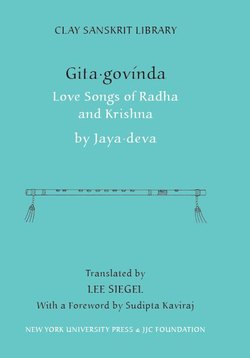Читать книгу Gita Govinda - Jayadeva - Страница 11
На сайте Литреса книга снята с продажи.
ОглавлениеFOREWORD
J
aya·deva’s “Gita·govinda” (Gitagovindakavya) is one of the classics of Sanskrit literature, and like all classic works, it must be read through its two histories. The first history places it in the culture of its own time, the second explores how, although it was of that world, it came down to us with undiminished splendor: why it was of its time, and also of all time.
The “Gita·govinda” began its life as a classic work for the great Vaishnava literary tradition; but its audience spread beyond the religious to all who loved Sanskrit literature. It became one of the defining texts of literature and music in some regions of India. The “Gita·govinda” is, at one level, what it says it is: a song of Govinda—in many senses. Its being a song to Govinda implies that the emotion that the devotee feels for his god is in excess of ordinary language: only a song—the enhancement of ordinary language by poetry—can express the devotee’s emotion. This implies that God could not be reached without that language: we, ordinary people, may have a feeling of fullness towards the world, and towards God; but we do not possess a language which can carry that fullness and bring it to a flowering expression. This can only be expressed by poetry.
But this is also a song about Govinda, with very interesting features. At the center of its poetic world is Krishna, but worshipped in a significantly new form. The “Gita·govinda” represents a crucial extension of the narrative scope of the story of Krishna. In earlier, conventional texts, Krishna was primarily admired for qualities of invincible valor or states-manly wisdom. These qualities make the figure of Krishna ________
